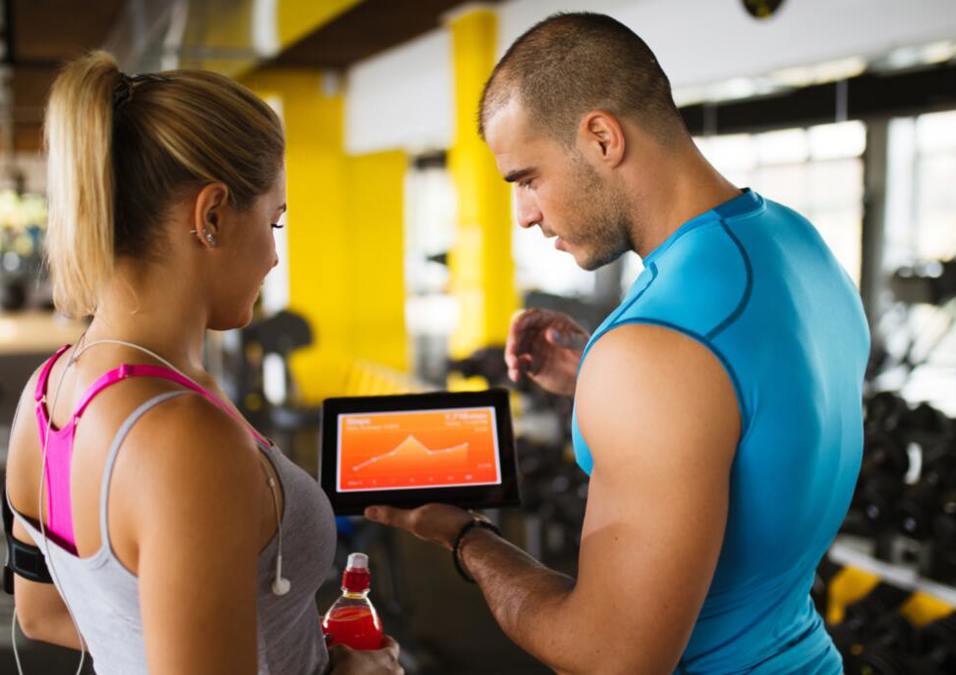AI's Impact on Fitness Apps

SIGN UP FOR YOUR FREE DAY PASS TODAY!
Apps have long been celebrated for fostering personalized interactions and bringing the club experience directly into members' hands.
The integration of AI into these apps now offers a chance to elevate personalization even further. If the goal has been one-to-one interactions for improving retention, AI might just be the ultimate solution.
Harnessing AI's Capabilities
AI algorithms can forecast individual preferences, behaviors, and patterns by examining user data.
This allows mobile apps to provide personalized content, suggestions, and alerts, enhancing user engagement and experience.
These are not mere possibilities but actual capabilities. AI's advancement in providing detailed personalization stems from its capacity to counteract "inherent bias."
AI bias, also known as machine learning or algorithm bias, arises from human biases in training data or algorithms, leading to skewed results.
Since AI is built on human-driven data and decisions, cultural biases often seep into the system. Essentially, AI's effectiveness relies heavily on the information it processes.
Apps can overcome this bias by utilizing specific member data—like age, gender, weight, health assessments, demographics, and fitness habits—for precise targeting.
Additionally, there's a growing array of member information that can refine these outputs.
"We’re seeing a trend in the fitness sector where clubs use various data points to customize member programs,” notes Bill Davis, CEO of ABC Fitness.
“Data from genetic tests, body composition, mobility, strength, cardiovascular assessments, and sleep patterns are starting to blend healthcare and fitness realms. AI can revolutionize club apps by integrating these biomarkers."
By focusing on biomarkers instead of social data for personalization, clubs can reduce bias in predictive models, addressing members’ unique needs like never before.
"The objective data centered on individual members enables dynamic, real-time engagement across fitness routines and beyond, greatly enhancing fitness apps," states Al Noshirvani, co-founder of Alta Technology Group, a firm specializing in health, fitness, and wellness tech consulting.
Meeting Member Needs Instantly
The true power of AI lies in how it compiles and uses data.
"The rapid pace of algorithm processing is key," observes Dr. Chris Nocera, Chief Data Scientist at 535, a tech platform developer. "AI quickly sifts through vast data and delivers actionable insights in mere moments, allowing recommendations in real time."
Adaptive workout programs exemplify this capability.
“MyFitnessPal uses AI to offer dietary and exercise advice in real time, based on a user’s activity, goals, and diet,” explains Noshirvani.
“Similarly, eGym's solution uses machine learning to provide continuous motivation with real-time feedback, like form corrections and motivational cues, keeping users driven and engaged."
This could lead to a scenario where, during a treadmill session in a connected equipment ecosystem, a club-branded app advises a member on optimal incline and speed adjustments.
Post-workout, it suggests recovery options and meal plans based on workout data like calorie burn and other factors. Throughout the day, it provides tips on hydration, nutrition, and even ideal sleep times.
These aren’t random affirmations but concrete steps for health improvement, tailored by AI to the member’s personal information and needs.
"It’s a companion guiding members through their daily, weekly, and monthly fitness journeys," adds Nocera. "Such personalized interaction is a powerful retention tool."
Operator Advantages
AI not only supports members but also offers benefits to club operators.
“AI algorithms have transformed personalized communication, making fitness management software and apps highly engaging,” says Davis.
"For operators, AI can streamline billing, personalize amenity suggestions, and create targeted upsell opportunities.
It also enhances sales and marketing via automated, personalized reminders and motivational content throughout the membership lifecycle."
AI improves productivity too. "Automation of certain tasks reduces staffing-related expenses," states Noshirvani.
"Data handles tasks typically requiring human effort, allowing staff to focus on member engagement."
Looking at the bigger picture, Nocera suggests AI can help operators tailor marketing, customize classes, and identify trainer profiles that resonate with members based on preferences.
AI also enhances communication, offering personalized messaging that motivates members with a tone suited to their personality.
Satisfying Member Demands
AI in club apps meets the increasing demand for comprehensive features.
“We’ve noticed that members want more than basic tracking,” says Davis.
"They seek real-time guidance tailored to their lifestyle. AI centers the digital experience around the member, adapting content to suit their evolving interests and goals, which aids in quicker fitness achievements."
"The future of AI in fitness apps is set to be transformative," he adds. "With wearables and biomarkers integration, AI could significantly enhance health ownership and understanding of fitness benefits.
Hyper-personalized programs, predictive health analytics, and wellbeing integration could position clubs as essential health hubs alongside personal physicians."
Enhancing App Functionality with AI
ABC Fitness CEO Bill Davis highlights how AI enhances app features, such as workout programming:
- Personalized Plans: AI creates workouts tailored to fitness levels, goals, and preferences for effective, enjoyable sessions.
- Real-Time Feedback: AI offers instant exercise feedback and adjusts workouts to maximize results and prevent injuries.
- Progress Tracking: Continuous monitoring and analytics help members understand progress and areas for improvement.
- Adaptive Goals: AI sets achievable fitness milestones based on user feedback and progress.
- Scheduling Adjustments: AI automatically schedules and adjusts personal training sessions.
- Behavioral Nudges: AI sends reminders and motivational messages to maintain fitness consistency and healthy habits.
"These AI capabilities make apps more efficient, personalized, and engaging, enhancing user satisfaction," concludes Davis.
Source: healthandfitness
The opinions shared in the GymNation blog articles are solely those of the respective authors and may not represent the perspectives of GymNation or any member of the GymNation team.
GET YOUR FREE TRIAL TODAY

















































































